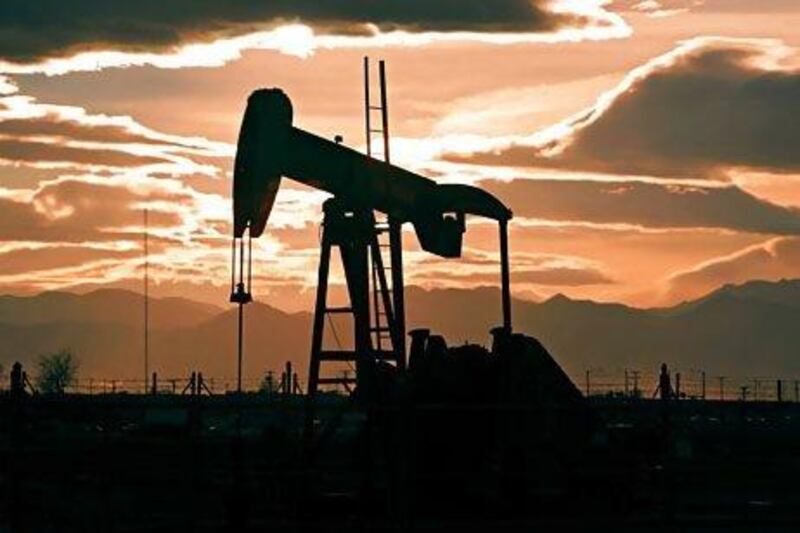Nasa engineers staring at unemployment found second careers in the energy industry after the Space Shuttle programme closed down this year, reminding those who are listening, not enough it would seem, that trying to extract oil and gas from thousands of feet under the ground in far remote hostile exotic environments is still a pretty cool pursuit.
Unfortunately, another year has passed with the industry failing to convey this dynamic message to young engineers that have only Google and dotcom in their sights. In the 1970s, 40 colleges in the United States, the world's largest energy consumer, offered degrees in petroleum engineering. Today, you can count them on one hand.
Not all is lost, however, especially with another year of oil priced at more than US$100.
The past year also consolidated the post credit-crisis investor posture that energy and commodities remain the space of choice by investors exhausted from the roller coaster of uncertainty surrounding the ever just around the corner economic recovery. That said, it has to be acknowledged this thesis did undergo a second-quarter siege as oil prices and many commodities appeared to be in free fall as China wobbled, propelling obituaries to be written declaring the end of the so-called supercycle.
Never in the modern history of the global economy has the price of so many commodities risen as much and stayed as high for so long. The scale and duration of the commodities supercycle matters far beyond the day-to-day business of raw materials markets and trading. It directly affects many of the world's largest basic industries, including mining companies such as BHP Billiton and Rio Tinto, oil and gas groups including ExxonMobil and BP, and agribusiness companies including Deere & Co.
Crude, food and gold came roaring back in the second half of the year to give the supercycle at least a stay of execution, but perhaps with not the same bullish confidence that may trigger many to reconsider the investment landscape in 2013 with Europe falling back into recession and the United States looking over a fiscal cliff.
Another year of oil at $100-plus has brought with it changes to the industry the scale of which we have not witnessed since in the wake of $10 oil in the late 1990s when a wave of M&A activity redefined the sector. In the past few years we appear to be witnessing a new transformation, less defined perhaps but equally as radical - supermajors are slimming down; independents are joining forces; service companies are taking on IOC activities; trading firms are diversifying and building asset bases - 2013 may bring clarity to the destination and consequence of this new wave of transformation.
In 2000, shale gas represented just 1 per cent of American natural gas supplies. Today, it is 30 per cent and rising. The US now seems to possess a 100-year supply of natural gas, which is the cleanest of the fossil fuels. This cleaner, cheaper energy source is already replacing dirtier coal-fired plants.
The lower US gas prices when compared with Europe is now driving a considerable manufacturing cost differential for high energy users. When the grumbles are coming from German manufacturers who are considered the last remaining bedrock of an unstable European economy, then we need to be concerned about long term erosion of demand. So incredibly, low energy prices, which are great for US manufacturing and consumers, could potentially drive a rift between the US and Europe in 2013, another problem the European Union doesn't need.
The EU is going through its most profound crisis since its establishment. The dramatic economic downturn that most countries have experienced, coupled with a lack of agreement among politicians on how to reverse it, has given way to increasing social discontent, the rise of political extremism, and a general erosion of confidence.
Despite the clouds of uncertainty, I am optimistic about 2013. Let's all get out more and spread the word and maybe just maybe we will attract some of the brightest talent out there to join us oldies build an energy rich world that looks forward to both a stable economic and political future for all.
James McCallum is the chief executive of energy services company Senergy





